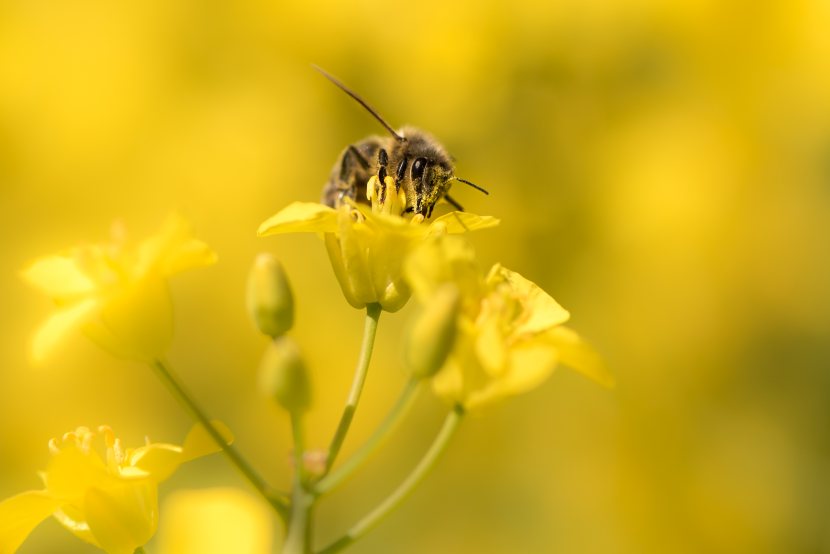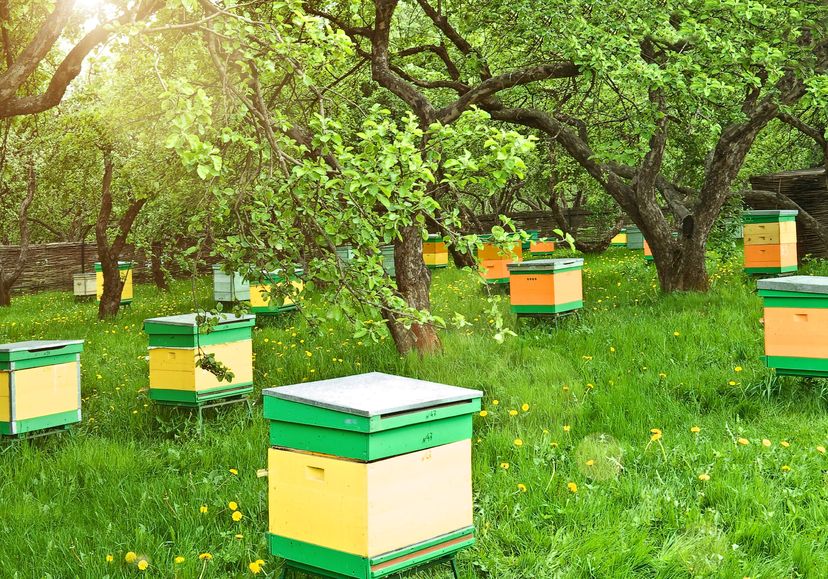
Two neonicotinoid insecticides may have inadvertent contraceptive effects on male honey bees, a new study from the University of Bern has shown.
Male honey bees, called drones, can be affected by two neonicotinoid insecticides by reducing male honey bee lifespan and number of living sperm.
Both insecticides are currently partially banned in Europe. Researchers from Bern, Switzerland, together with partners from Thailand and Germany, call for more thorough environmental risk assessments of these neonicotinoids.
In recent years, beekeepers have struggled to maintain healthy honey bee colonies throughout the northern hemisphere.
'More thorough environmental risk assessments'

In the first study to investigate the effects of neonicotinoids on drones, an international research team led by the University of Bern and Agroscope has found that two neonicotinoids may inadvertently reduce drone lifespan and number of living sperm.
Because queen survival and queen productivity are intimately connected to successful mating with males, any influence on sperm quality may have profound consequences for the health of the queen, as well as the entire colony.
In light of recent beekeeper surveys that identified poor queen health as an important reason for honey bee colony losses, this study further strengthens calls for more thorough environmental risk assessments of these insecticides, as well as other crop protection products, to protect bees and other beneficial organisms.
"We know multiple stressors can affect honey bee health, including parasites and poor nutrition.
"It is possible that agricultural chemicals may also play an important role", says senior author Geoff Williams of the University of Bern and Agroscope.
Restricting use of neonicotinoid insecticides
In 2013, the European Union and Switzerland took a precautionary approach by partially restricting the application of the widely used neonicotinoid insecticides thiamethoxam, clothianidin, and imidacloprid, with the mandate to perform further environmental risk assessments.
Previous research suggests that these chemicals cause both lethal and sub-lethal effects on honey bee females from exposure, but nothing is known about how they may affect males of the species.
Co-author Peter Neumann from Bern states: "These results, coupled with the importance of males to honey bee reproduction, highlight the need for stringent environmental risk assessments of agricultural chemicals to protect biodiversity and ecosystem functioning."
Honey bees, like all insect pollinators, provide crucial ecosystem and economic services.
Annually in Europe and North America, millions of honey bee colonies produce honey and contribute to the pollination of a range of agricultural crops – from carrots to almonds to oilseed rape – that is valued at billions of Euros.
